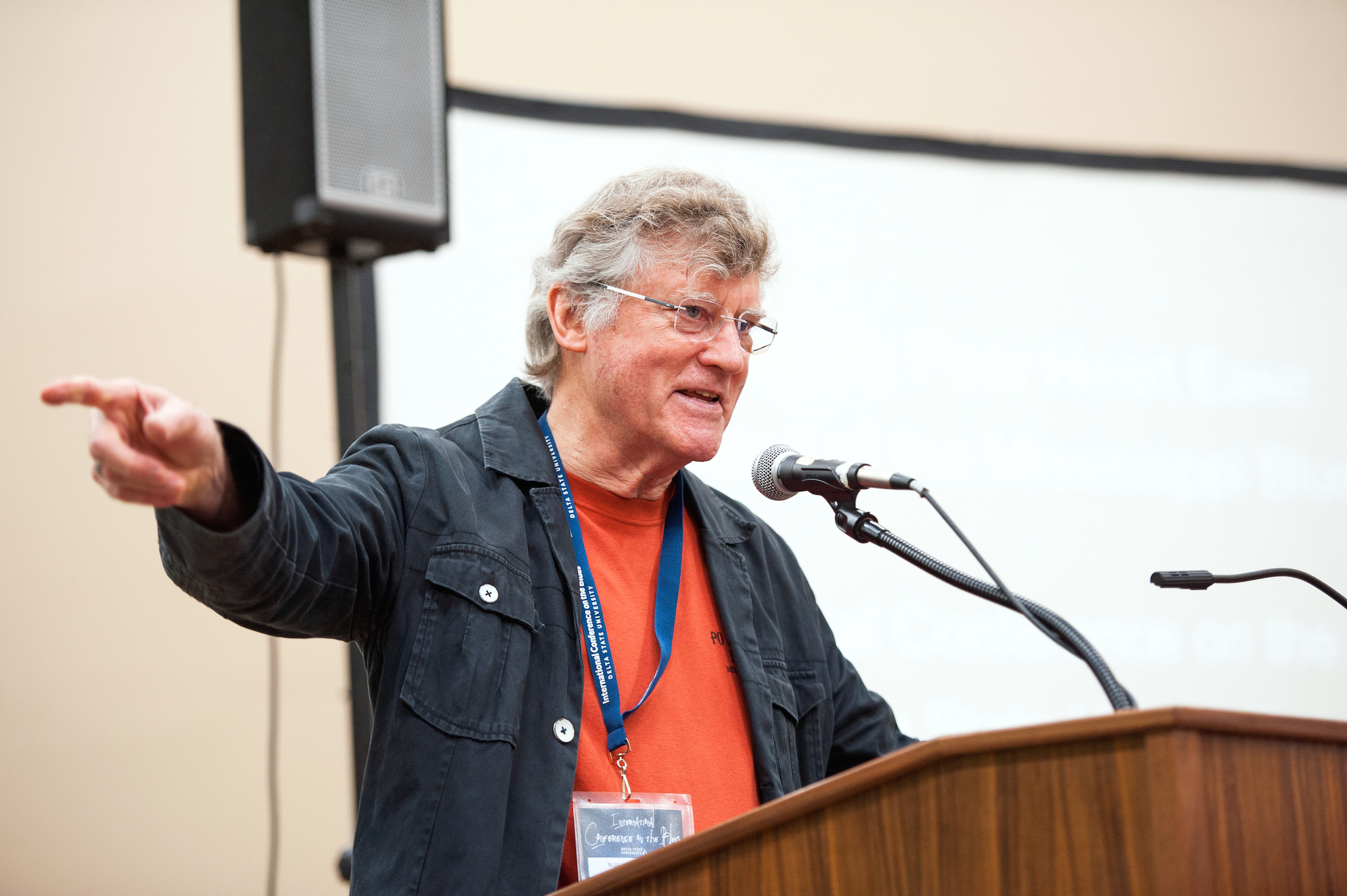Roger Stolle, owner of Cat Head Delta Blues & Folk Art in Clarksdale, Miss,, will present a lecture on blues entrepreneurship and the Mississippi Delta’s creative economy as part of Delta State University’s International Conference on the Blues.
The pre-conference lecture event will take place Oct. 1 at 5:30 p.m. at the Coahoma County Higher Education Center, a Delta State satellite campus located at 109 Clark St. in Clarksdale. The lecture is free and open to the public through a partnership between CCHEC and The Delta Center for Culture and Learning, which is the home of the International Delta Blues Project.
“I am so pleased to be working with the Delta Center for Culture and Learning at Delta State University to offer this lecture at the CCHEC campus,” said Jen Waller, director of the Coahoma County Higher Education Center. “Roger Stolle has been a blessing to the Clarksdale community for years. He has used his passion, drive and skillset to promote the music that he loves. His story is inspiring and certainly worth listening to.”
The International Delta Blues Project features three components: the International Conference on the Blues, which will take place at Delta State’s main campus in Cleveland on Oct. 5-6; the Blues Studies minor, which has launched this fall semester at Delta State; and the Blues Leadership Incubator, which focuses on blues and economic development.
Stolle’s lecture represents one in a series of lectures and workshops that are part of the Blues Leadership Incubator. These lectures and workshops are designed to provide the public with a deeper understanding of the Mississippi Delta’s creative economy.
“Delta State is a regional institution that serves the Mississippi Delta through educational, cultural and economic development,” said Dr. Rolando Herts, director of The Delta Center. “This lecture will provide an opportunity for the Clarksdale community to learn more about how the International Delta Blues Project is doing this by engaging accomplished creative economy professionals like Roger Stolle to share their knowledge and expertise with Delta communities.”
After a successful 13-year marketing career in corporate America, Stolle moved to Clarksdale in 2002 to “organize and promote the blues from within.” He is the author of the book “Hidden History of Mississippi Blues” and co-producer of the films “M for Mississippi” and “We Juke Up in Here.” He co-founded several Clarksdale based music and cultural festivals including the Juke Joint Festival, the Clarksdale Film Festival, the Clarksdale Caravan Music Fest, and the Delta Busking Festival. He is also the recipient of the Keeping The Blues Alive Award and the Blues Music Award from the Blues Foundation.
“We in Mississippi — especially Clarksdale — were building a creative economy before there was even a name for it,” said Stolle. “When I moved to Clarksdale 13 years ago, we had live blues just two nights a week, one festival per year and one museum. Today, we have live blues seven nights a week, over half a dozen festivals and two museums. We also have a dozen new businesses downtown and at least 150 additional hotel rooms.”
Don Allan Mitchell, co-chair of the blues conference, and a Delta State professor, is excited to add Stolle to the conference schedule.
“Mr. Stolle’s bold business decision to open up Cat Head in 2002 is exactly the visionary, entrepreneurial thinking that we know will inspire our students at Delta State, as well as our wider Delta Community,” said Mitchell. “It is an honor that Roger is so supportive of the conference.”
In addition to catalyzing Clarksdale’s revitalization through blues music and culture, Stolle is a highly sought after marketing, public relations, and artist booking expert both locally and globally. He has worked with a wide array of clients including the Mississippi Blues Trail, and many blues record labels, festivals, and non-profit organizations.
He has also booked Mississippi bluesmen on numerous festivals and tours — taking Delta legends such as Big George Brock, James “T-Model” Ford and Robert “Bilbo” Walker to countries like Italy, Switzerland, the UK, France, the Netherlands, Norway and Brazil.
To register for attendance at Stolle’s lecture and for more information, contact Jen Waller via email atjwaller@deltastate.edu or phone at 662-645-3555.
To register for the International Conference on the Blues, visit the conference website athttp://www.deltastate.edu/president/international-blues-conference/.
The mission of The Delta Center is to promote greater understanding of Mississippi Delta culture and history and its significance to the world through education, partnerships and community engagement. The Delta Center is the home of the International Delta Blues Project and serves as the management entity of the Mississippi Delta National Heritage Area. For more information, visit http://www.deltastate.edu/academics/delta-center-for-culture-and-learning/.




















